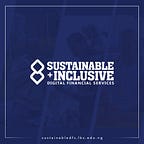Is there a case for lending activities by Payment Service Banks (PSBs)?
PSBs are presently prohibited by the CBN from offering loans and experts believe this limits their profitability; so what does that mean for PSBs?
One prevailing sentiment is that the granting of approval-in-principle of PSB licenses to MTN and Airtel affiliates can move the needle on financial inclusion in Nigeria as telcos have the capacity to bank the unbanked. However, it appears that the earlier licensed PSBs — Hope PSB, 9PSB, and MoneyMaster PSB — have not had a stellar roll out, performance or impact thus far.
In 2021, we hosted a webinar where experts reviewed the progress of Payment Banks in India, and it was revealed that, of the four licensed Payment Banks, two had shuttered and the first to become profitable did so in its third year of operation. Furthermore, “…evidence from India showed that the average value of transactions processed by Payment Banks is lower than average value of transactions processed by DMBs and microfinance banks.” That led us to recommend that:
Payment banks may be able to carve a niche for themselves serving the low income segments by offering
a.) higher interest rates on deposits than the rest of the industry.
b.) lower transaction fees than the rest of the industry.”
The first option, offering higher savings deposit interest rate, may be a bit of a stretch, given that the permissible range of activities may not offer great possibilities of a quick recycling churn in using the money or for higher spreads on federal government and Central Bank of Nigeria (CBN) securities. The second option is existential and may be achieved by using a largely digital and agent led business model with a no-frills cost operational and expenditure culture across the business.
Some writers have asked whether the prohibition of PSBs to lend money to customers could ameliorate the sustainability risks of PSBs. But then, in India, Payment Banks are similarly excluded from granting loans but permitted to enter into strategic alliances with partners who could do so. Indeed, FINO Payment Bank in India has adopted this expedient, which has meant beneficiating the services to customers, accessing more customers, retaining them, whilst avoiding any baggage of credit administration and non-performing loans on its books. However, the CBN maintains that Nigerian PSBs may not carry out indirect lending in this manner.
Advance data (see table below)* from a research study on credit infrastructure in Nigeria** suggests that there may be a case for permitting PSBs to lend directly or indirectly.
Regarding access and the sources of credit to MSME businesses, the data demonstrates that Commercial Banks constituted the predominant source. Microfinance Banks were a distant second. Relatively speaking, there is a lower patronage of moneylenders, and savings groups or cooperative societies. Apparently, commercial and microfinance banks were a greater source of credit, due in part to their perceived credibility and reliability, availability of funds and ease of access to low interest rates. For microfinance banks, access to loans without collateral was a key motivator, along with ease of access/payment. It is likely that the favourable perception of banks may be carried over to and advantageous to PSBs.
By inference, banks will remain critical in driving access to credit at the lower end of the market. According to the CBN PSB Guidelines, PSBs have been established: “[due to] the need to complement the services provided by other licensed entities… [and] to leverage on mobile and digital channels to enhance financial inclusion and stimulate economic activities at the grassroots through the provision of financial services.” It is logical policy and strategy to position PSBs to play a significant role in driving access to credit for the grass roots. The stated objective should then go beyond enhancing “financial inclusion by increasing access to deposit products and payment/remittance services to small businesses…”
Financial inclusion goes beyond formal inclusion and includes the availability of diverse services at affordable rates to all citizens without exclusion. There is need for a reappraisal of the PSB strategy and it is not too early to do so, in spite of the expectations that the e-Naira would help increase formal inclusion. Access to credit considerations for the larger market or bottom of pyramid market (grass root small business, unbanked and rural locations) ought to be given greater weight by CBN in the PSB strategy. Systemic risk, safety and financial inclusion are concomitants and greater harmony in driving the banking and financial inclusion strategies will provide larger wins across board.
*The participants surveyed in the study are borrowers and non-borrowers, female (72%), 64% are youths and young adults in the age categories 25–34 years and 35–44 years. 87% are either business owners or manage a business. Over 70% of the businesses employed zero to five (0–5) full-time employees, operating within a sole proprietorship, 63%; limited liability company, 30%; and partnership, 7%. 57% of the businesses serve domestic urban areas and43% domestic peri-urban locations. Over 60% of the respondents have been in business for 5 years or more.
**Evaluation/Study on Impact of Credit Infrastructure Reforms in Nigeria; unpublished report 2021, CBN, IFC & World Bank.
— — — — — — — — — — — — — — — — — — — — — — — — — —
Professor Olawale Ajai is the Policy Lead at the Sustainable and Inclusive Digital Financial Services initiative of the Lagos Business School.
